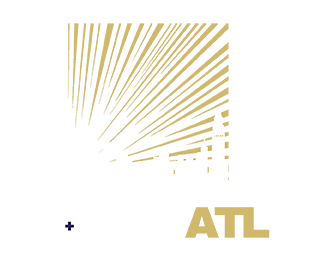Were you in a car accident in the State of Georgia and need to obtain…

Several factors cause most accidents, and establishing blame is not always easy. All states have laws in place that determine how much financial compensation road users can receive if they were partially responsible for causing the accidents that injured them. In fact, some of them prevent damages from being awarded if the plaintiff is in any way to blame. Nathan Fitzpatrick is an experienced car accident injury lawyer who has been advocating on behalf of car accident victims for more than a decade. In this article, he will explain how the Georgia comparative negligence law could affect the amount of compensation you receive if you are injured in a motor vehicle accident. He will also cover the strategies that insurance companies use to influence how blame is allocated.
Introduction to Comparative Negligence in Georgia: How It Differs from Other States
Georgia's approach to comparative negligence in car accident cases is distinct from other states, falling under the category of "modified comparative negligence." Unlike pure comparative negligence states, where victims can recover damages even if they are 99% at fault, Georgia's law sets a different threshold. Here, victims can only claim compensation if they are less than 50% responsible for the accident.
This approach is notably different from the even stricter, "contributory negligence", rule used in a few jurisdictions, where any fault on the victim's part can completely bar them from receiving compensation.
This framework in Georgia strikes a balance, allowing victims to seek damages proportionate to their level of fault as long as it does not reach or exceed 50%. This system emphasizes a fair assessment of each party's responsibility, ensuring that compensation is adjusted accordingly.
The Legal Framework of Comparative Negligence in Georgia
In civil law, a party is at fault when they fail to meet a duty of care, and others suffer injury, loss, or damage as a direct consequence. In many auto accident cases, more than one party is at fault. To better understand how this could affect the compensation you could be entitled to for car accident injuries, we will take a look at the elements of a personal injury lawsuit.
To prevail in court, a personal injury plaintiff must establish:
- The plaintiff had a duty of care: This is rarely a problem in car accident cases, as all road users are expected to do everything that they reasonably can to prevent accidents and injuries. This means they are expected to obey traffic laws and remain vigilant at all times.
- The plaintiff failed to meet their duty of care: This is where fault becomes important. To meet this burden, a plaintiff must prove by a preponderance of the evidence that the defendant acted negligently.
- Causation: To recover damages, a civil plaintiff must establish that the defendant’s negligent actions were the proximate cause of their injury, loss, or damage. This means that they must convince the jury that they would not have been injured if the defendant had acted responsibly.
Key Statutes and Legal Definitions
In understanding Georgia's comparative negligence law, it's crucial to familiarize oneself with key legal statutes and definitions. Georgia's comparative negligence is primarily governed by O.C.G.A. § 51-12-33, which details how damages are to be apportioned based on the plaintiff's degree of fault. This statute defines the crucial terms and lays down the framework for how negligence is calculated in personal injury types of cases.
Key legal definitions include "negligence," which refers to the failure to exercise reasonable care, and "duty of care," a legal obligation requiring individuals to adhere to a standard of reasonable care while performing acts that could foreseeably harm others. The concept of "proximate cause" is also vital, denoting the primary cause of an injury, without which the injury would not have occurred.
Additionally, the term "damages" encompasses the compensation sought by the plaintiff, categorized into economic (like medical expenses and lost wages) and non-economic damages (such as pain and suffering). Understanding these terms and how they are applied in Georgia's legal system is essential for comprehending the comparative negligence rule and its implications in personal injury cases.
Comparative vs. Contributory Types of Negligence: What's the Difference?
Understanding the distinction between comparative and contributory types of negligence cases is crucial in the context of Georgia's legal landscape. Comparative negligence, the doctrine followed in Georgia, allows for the apportionment of fault among all parties involved in an accident. Under this system, a victim can still recover damages even if they are partially at fault, though their percentage of fault reduces their compensation. This is particularly significant in cases where multiple parties have contributed to the cause of the accident.
Contrastingly, contributory negligence, a more rigid doctrine followed by a minority of jurisdictions, bars a victim from recovering any damages if they are found to have any degree of fault, no matter how minimal. This can be particularly harsh, as even a small amount of negligence on the part of the victim can completely negate their ability to claim compensation.
Georgia's approach to comparative negligence is more forgiving and equitable, recognizing that fault in an accident can be shared and that compensation should be adjusted to reflect each party's level of responsibility. This system ensures a fairer outcome, as it does not completely penalize victims who may have been partially at fault but still suffered significant losses or injuries due to the actions of others.

Real-World Applications: Examples of Comparative Negligence in Georgia
Georgia's comparative negligence law comes into play in numerous real-world scenarios, impacting the outcomes of many personal injury type of cases. By examining specific case studies and court decisions, we can gain a deeper understanding of how this law is applied and its practical implications.
Case Studies and Court Decisions
Multi-Vehicle Accidents: In incidents involving several vehicles, Georgia's comparative negligence system allows for the allocation of fault among all involved parties. For example, in a chain-reaction crash, one driver might be found 40% at fault for following too closely, while another could be 60% at fault for speeding, impacting the compensation each party receives.
Pedestrian Accidents: Consider a case where a pedestrian is hit while jaywalking. The pedestrian may be found partially at fault for not using a crosswalk. However, if the driver were speeding or distracted, they would also bear a portion of the blame. The final compensation would then be adjusted based on each party's degree of fault.
Slip and Fall Cases: In situations where a person slips and falls on a privately owned property, comparative negligence might be used to determine if the victim's carelessness contributed to the accident. If the victim ignored visible warning signs or was on a restricted part of the property, their compensation could be reduced accordingly.
Product Liability Cases: In cases involving defective products, if a consumer was using the product in a way not intended by the manufacturer, their negligence might reduce the compensation they receive from the manufacturer for any injury caused by the product's defect.
These examples highlight the complex nature of Georgia's comparative negligence law. Court decisions in such cases often hinge on detailed investigations and assessments of each party's actions leading up to the accident. The goal is to ensure that compensation is fairly distributed based on the relative fault of all involved, aligning with the principles of justice and equity.
How Comparative Negligence Impacts Personal Injury Cases
The Georgia comparative negligence law allows car accident victims to recover damages even if they acted negligently, but the amount they receive is reduced to reflect their degree of fault. When personal injury claims are not resolved at the negotiating table and are left up to a jury to decide, the following steps are taken:
Damages are calculated: Before the modified comparative fault doctrine is applied, the plaintiff's economic and noneconomic damages are calculated. Economic damages compensate car accident victims for their medical bills, property damage, and lost income, and noneconomic damages compensate them for their pain and suffering and mental anguish.
Fault is allocated: Once the plaintiff's damages have been calculated, the jury is tasked with allocating blame. This is done by examining evidence.
Damages are adjusted: The final step in the process is adjusting the plaintiff’s damages to reflect their degree of fault. If the jury determined that the plaintiff was 40% responsible for causing the accident that injured them, their damages will be reduced by 40%. If the jury determines that the plaintiff bears 50% or more of the blame, they will award no damages.
Determining Fault and Liability in Georgia's Comparative Negligence System
In Georgia's comparative negligence system, determining fault and liability hinges significantly on the collection and interpretation of evidence alongside persuasive legal arguments.
The Role of Evidence and Legal Arguments
Evidence plays a pivotal role and can include witness testimonies, surveillance footage, police reports, and expert opinions. Legal arguments are then crafted around this evidence to establish the extent of each party's negligence. Attorneys meticulously analyze the details of the incident to construct arguments that accurately reflect their client's degree of fault or, conversely, emphasize the negligence of the other party.
Assessing Percentage of Fault: A Critical Factor
A key aspect of Georgia's system is the assessment of the percentage of fault attributed to each involved party. This process requires a careful and objective evaluation of all available evidence. Factors such as the severity of the breach of duty of care, the directness of causation, and the foreseeability of harm are all considered in this assessment. The jury or judge evaluates these factors to assign a specific percentage of fault to each party, which directly influences the outcome of the case.
Comparative Negligence and Its Impact on Compensation
A key aspect of Georgia's system is the assessment of the percentage of fault attributed to each involved party. This process requires a careful and objective evaluation of all available evidence. Factors such as the severity of the breach of duty of care, the directness of causation, and the foreseeability of harm are all considered in this assessment. The jury or judge evaluates these factors to assign a specific percentage of fault to each party, which directly influences the outcome of the case.
Factors That Could Influence Fault
Insurance companies also follow these steps when they negotiate car accident claims, but unlike juries, they have a vested interest in the outcome. Georgia is an at-fault state, which means the at-fault driver’s insurance company is responsible for compensating accident victims.
This fact means that you can expect your version of the events to be questioned if you are involved in a car accident and seek compensation.
Evidence that an insurance company could use to shift the blame from their policyholder to you includes:
- The police report: Police officers in Georgia allocate blame when they complete accident reports, and their opinions carry a great deal of weight at the negotiating table and in court.
- Motor vehicle infractions: If you are ticketed for driving too close, speeding, reckless driving, or some other motor vehicle infraction at an accident scene, an insurance company will likely claim that the compensation you receive should be reduced.
- Toxicology test results: Police officers in Georgia can order motorists they suspect of operating their vehicle while under the influence of alcohol to take breath tests. Failing or refusing to take a breath test could make recovering compensation more difficult. A refusal could also lead to your driver’s license being suspended.
- Wireless service records: If your wireless service records show that you were using your cellphone when you were involved in an accident, the at-fault driver’s insurance company will likely reduce their settlement offer.
- Medical records: The at-fault driver’s insurance company may also ask to see your medical records to make sure that your accident injuries were not preexisting or made worse by a medical condition.
- Black box data: Modern vehicles have devices that keep track of speed and driver inputs. An insurance company could use this data to show that you were driving too quickly or did not apply your brakes as early as you should have.
Calculating Damages and Compensation Reduction
In Georgia's comparative negligence framework, the calculation of damages and subsequent adjustments due to negligence are critical steps in determining the final compensation awarded to a plaintiff. Damages in personal injury type of cases are generally divided into two categories: economic and non-economic damages.
Economic damages refer to quantifiable financial losses such as medical expenses, lost wages, and property damage. Non-economic damages, on the other hand, cover intangible losses like pain and suffering, emotional distress, and loss of enjoyment of life.
Once the total amount of damages is established, the next step is to apply the comparative negligence rule. If a plaintiff is found to be partially at fault, the total damages are reduced in proportion to their percentage of fault. For example, if the total damages amount to $100,000 and the plaintiff is deemed 30% responsible for the accident, the final compensation would be reduced by 30%, resulting in a $70,000 payout.
Scenarios Where Comparative Negligence Affects Payouts
Comparative negligence can significantly impact the compensation in various scenarios, including:
- Car Accidents: If a driver is partially at fault in a car accident, such as by speeding or not signaling, but the other driver is also negligent, perhaps due to distracted driving, the compensation is adjusted based on each driver's share of fault.
- Workplace Injuries: In cases where an employee is injured at work due partly to their own negligence (like ignoring safety protocols) and partly due to the employer's negligence (such as inadequate training), the compensation awarded would be reduced according to the employee's degree of fault.
- Premises Liability Cases: For instance, if a person slips and falls in a store but is not paying attention to where they are walking, their compensation for injuries may be reduced if it's determined that their lack of attention contributed to the accident.
In each scenario, the application of comparative negligence ensures that compensation is fairly allocated, reflecting the responsibility of all parties involved in the incident.
Navigating Comparative Negligence Claims: Tips and Strategies
Navigating comparative negligence claims in Georgia requires a strategic approach to ensure fair compensation. Here are key tips and strategies for effectively handling such claims:
- Gather Comprehensive Evidence: Collecting thorough evidence is crucial. This includes photos of the accident scene, witness statements, police reports, and any relevant surveillance footage. Evidence helps in establishing the facts and determining the degree of fault for each party involved.
- Understand the Legal Framework: Familiarize yourself with Georgia's comparative negligence laws. Knowing the specifics of how fault is determined and how it affects compensation can significantly influence the strategy you adopt in your claim.
- Document Everything: Keep detailed records of all communications, medical treatments, and expenses related to the incident. This documentation is vital for substantiating your claim and ensuring that all relevant details are considered in the compensation calculation.
- Be Mindful of Statements and Actions: Post-accident, be cautious about what you say and do, especially in interactions with insurance companies or the other parties involved. Avoid making any admissions of fault or statements that could be interpreted against your interest.
When to Consult a Personal Injury Attorney
When facing comparative negligence issues under Georgia Law, it's important to recognize the scenarios where consulting a personal injury attorney is beneficial:
- Assessing the Situation: In cases involving complex legal issues, significant injuries, or a high degree of shared fault, the guidance of a personal injury attorney is indispensable. They provide clarity on your legal rights and the potential outcomes you can expect.
- Negotiating with Insurance Companies: Handling negotiations with insurance companies, particularly when they aim to minimize their payout, can be challenging. An experienced attorney can effectively advocate on your behalf, ensuring that your interests are properly represented and protected.
- Legal Expertise and Representation: If litigation becomes necessary, having a professional attorney is crucial. They bring the needed legal expertise and skill to represent you in court, effectively presenting your case and addressing any comparative negligence claims made by the opposing side, all within the framework of Georgia Law.
Building a Strong Case in the Face of Comparative Negligence
If you want to recover compensation for injuries you suffered in a car accident, you will likely find yourself contending with an insurance adjuster or personal injury attorney sooner or later.
Insurance adjusters and attorneys who represent negligent drivers are skilled at raising doubt and shifting blame, so you should go into negotiations with an experienced professional in your corner if you want a favorable outcome.
In some situations, arguments over blame are dragged out intentionally to make car accident victims who are under financial stress desperate and eager to settle. Robust legal representation can help you with your comparative negligence defense. If you retain the services of an attorney to negotiate on your behalf, they could see through this tactic and put a stop to it.
An attorney will also be familiar with limitations to the comparative negligence defense established by Georgia's laws. For example, civil defendants in Georgia can not claim that an accident victim was negligent because they did not fasten their seat belt.
You may not know that the seat belt defense is prohibited in Georgia, but your attorney will. It should not cost you any money to find out about your legal options because most personal injury attorneys offer free consultations to prospective clients.
Frequently Asked Questions About Georgia's Comparative Negligence Law
Is Georgia a modified comparative negligence state?
Yes, Georgia is a modified comparative negligence state. This means that in a personal injury case, the compensation a plaintiff can receive is reduced by their percentage of fault. However, if they are found to be 50% or more at fault, they are barred from recovering any damages.
Does Georgia follow contributory negligence?
No, Georgia does not follow this doctrine. Instead, it adheres to the principle of modified comparative negligence. Under contributory types of negligence cases, a plaintiff who is even slightly at fault for an accident could be barred from receiving any compensation, which is not the case in Georgia.
Can you sue the state of Georgia for negligence?
Yes, it is possible to sue the state of Georgia for negligence. However, such lawsuits are subject to specific rules and limitations under the Georgia Tort Claims Act. This act outlines the procedures and conditions under which the state or its employees can be held liable for negligence. If you or someone close to you has a personal injury claim, contact Attorney Nathan Fitzpatrick of The Fitzpatrick Law Firm.
What is the burden of proof for comparative negligence?
In comparative negligence cases, the burden of proof lies with the plaintiff. The plaintiff must prove, by a preponderance of the evidence, that the defendant was negligent and that this negligence was a proximate cause of their injuries. Essentially, they must demonstrate that it is more likely than not that the defendant’s actions or inactions caused the harm they suffered.
The Significance of Comparative Negligence Laws in Georgia: The Takeaways
Understanding Georgia's Comparative Negligence Law is crucial for anyone involved in a motor vehicle accident within the state. Here are the key takeaways:
- Georgia's Unique Approach: Georgia follows a "modified comparative negligence" system, where compensation is possible as long as the plaintiff is less than 50% responsible for the accident. This differs significantly from "pure comparative negligence" and "contributory negligence" systems followed in other states.
- Legal Framework and Definitions: Familiarity with key statutes, like O.C.G.A. § 51-12-33, and legal definitions including 'negligence', 'duty of care', and 'proximate cause' is vital for understanding how compensation is calculated and awarded.
- Real-World Applications: Georgia's law is applied to various scenarios like multi-vehicle accidents, pedestrian accidents, slip and fall cases, and product liability, with each case requiring a detailed examination of the parties' actions.
- Determining Fault and Liability: The role of evidence and legal arguments is paramount in assessing the percentage of fault, which directly impacts the compensation.
- Impact on Personal Injury Types of Cases: The law allows for recovery of damages even if the victim was partially at fault, although the compensation is adjusted based on their degree of fault.
- Navigating Claims: Key strategies include gathering comprehensive evidence, understanding the legal framework, documenting everything, and being mindful of statements and actions.
- Consulting a Personal Injury Attorney: In complex cases, especially those involving significant injuries or a shared fault, the guidance of a personal injury attorney becomes crucial for navigating the intricacies of Georgia laws.
Gain Expert Insights from Nathan Fitzpatrick By Scheduling a Complementary Case Review
Thousands of car accident victims in Georgia receive less compensation than they deserve each year because insurance companies or lawyers convince them that they are at fault. Retaining the services of an experienced personal injury attorney could reduce the chances of this happening to you.
Attorney Nathan Fitzpatrick of The Fitzpatrick Firm has recovered millions of dollars for car accident victims, and we know all about the tactics insurance companies use to shift blame. If you want to go into settlement negotiations with an experienced professional at your side, you can schedule a free consultation by filling out the form below or calling us at (678) 607-5550.


